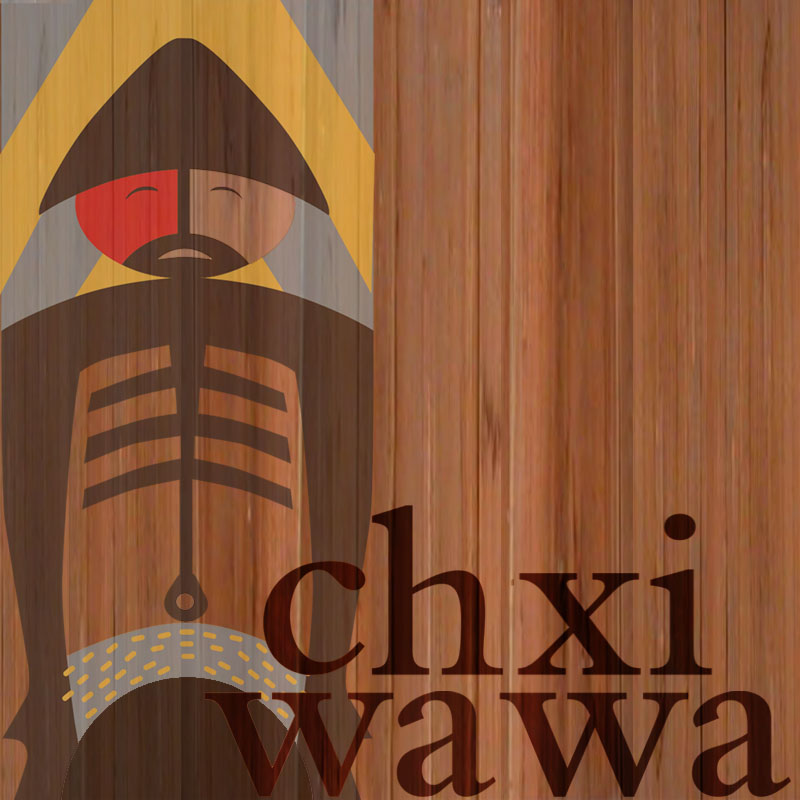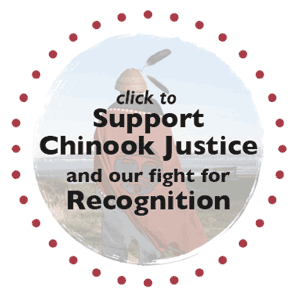A shared commitment to the land
There’s a phrase in Chinuk Wawa — “ɫush-tumtum” — that Rachel Cushman uses when something makes her have a good heart.
It’s a phrase that came to mind for her on Sunday, as members of the Chinook
Indian Nation and the Columbia Land Trust gathered at the Barbey
Maritime Center in Astoria to witness the signing of a historic
memorandum of understanding between the two entities, codifying their
relationship and signifying a shared commitment to the land.
“Really it just is the beginning of a beautiful relationship between our two organizations and really establishing good relations over place and providing opportunity for cultural knowledge on stewardship opportunities,” said Cushman, the secretary and treasurer of the Chinook Indian Nation.
For years, the Chinook Indian Nation and Columbia Land Trust have been building an informal relationship and engaging in conversations about the potential for a memorandum of understanding. With the help of a small grant, Cushman said they’ve more recently had the opportunity to lay out the framework for that agreement and develop best practices.
The memorandum formalizes a co-stewardship model, where the two organizations work reciprocally to care for land in traditional Chinook territory. But because the land trust owns land, the agreement also sets the table for another exciting opportunity: the potential to give some of that land back to the people who have stewarded it since time immemorial.
“This relationship creates access to land,” Cushman said. “I mean, indigeneity is defined by our dispossession, right? And so this is really a decolonial move of the land trust, like, ‘Let’s build a relationship. Let’s work on getting Indigenous lands back in the hands of Indigenous people. And you know, for feasibility, let’s help steward the land that we have in a way that makes the tribe feel good and is good for the land, because the tribe has been the stewards of the land for thousands of years.’”
The Columbia Land Trust’s work extends 60 miles north and south along the Columbia River from Astoria to The Dalles. Meg Rutledge, the nonprofit’s executive director, said their focus is on conservation through community relationships — including with tribal nations.
“Chinook Indian Nation have been the forever peoples in the lower Columbia basin, alongside other American Indians who’ve been here since time immemorial,” Rutledge said. “And that means that when we think and talk about the leaders for conservation, looking forward too of what it means to talk about conserving and caring for the land forever, which is what Columbia Land Trust tries to do, we see tribal nations as natural people that we can learn from and natural leaders for conservation and community-based outcomes.”
Cushman said the memorandum of understanding is especially significant as the tribes continue to fight for federal recognition. In 1851, the tribes signed the Tansy Point Treaties — but those treaties were never ratified, leaving them unrecognized. Although the Chinook Indian Nation briefly received federal recognition more than a century later in 2001, the decision was reversed just 18 months later.
To Tony Johnson, the Chinook Indian Nation’s chairman, sovereignty stems from a connection to the land. Therefore, the tribes’ lack of federal recognition doesn’t make them any less of a sovereign nation.
Still, it comes with its challenges.
“We spend so much time defending our land and our inheritance,” Johnson said at the event. “And you know, the work that we do together here — this MOU that’s being developed, the acknowledgment by everybody in the room of our relationship to our places, you know — is such an important part of continuing to both protect the land for future generations, but (also) the relationship that we hold.”
Cushman feels the same.
“What this does (is) it doesn’t wait for a mandate or approval. It does the right thing because it’s the just thing to do,” she said.
While the Chinook Indian Nation’s memorandum of understanding with the land trust marks the beginning of something, it also marks the continuation of something. Last year, the tribes signed a memorandum of agreement with the Necanicum Watershed Council. Over time, they’ve also formed informal relationships with counties and agencies across their traditional lands.
As they continue to fight for recognition, Cushman hopes that momentum toward relationship-building will also continue.
“My hope is that we continue to do this — we continue to do acts of radical sovereignty,” she said. “My hope is that we’re recognized. My hope is that we’re building a better, more protected future for Chinook people and everybody — all our neighbors — because when we’re in good relationships, we all benefit from it.”








